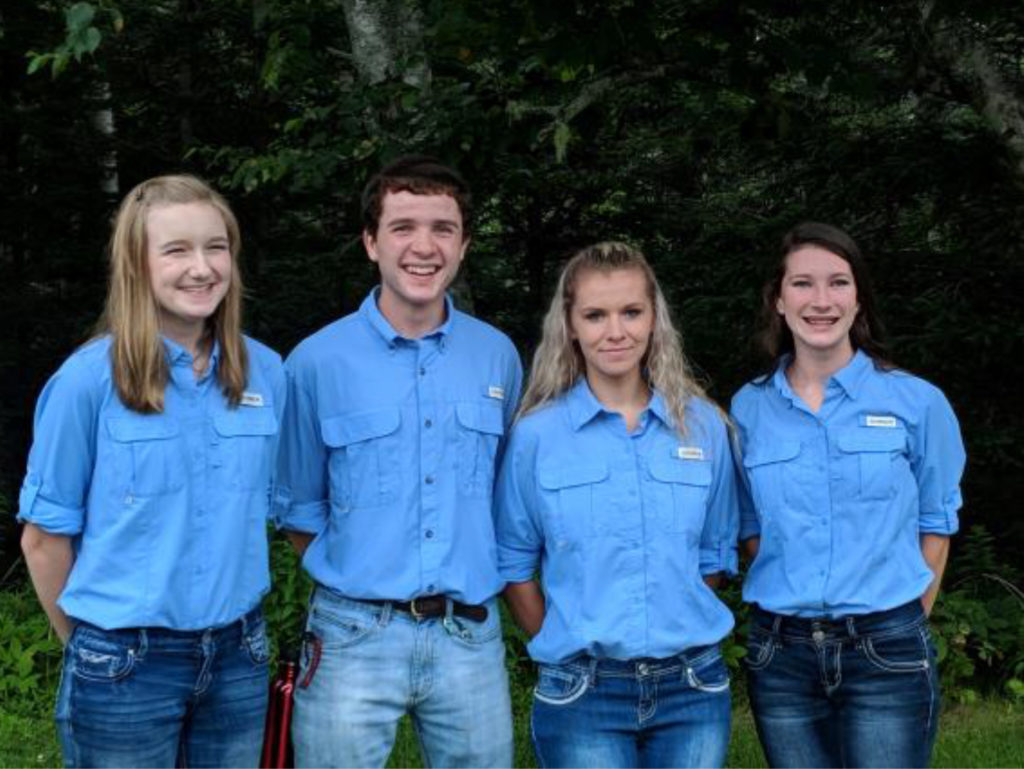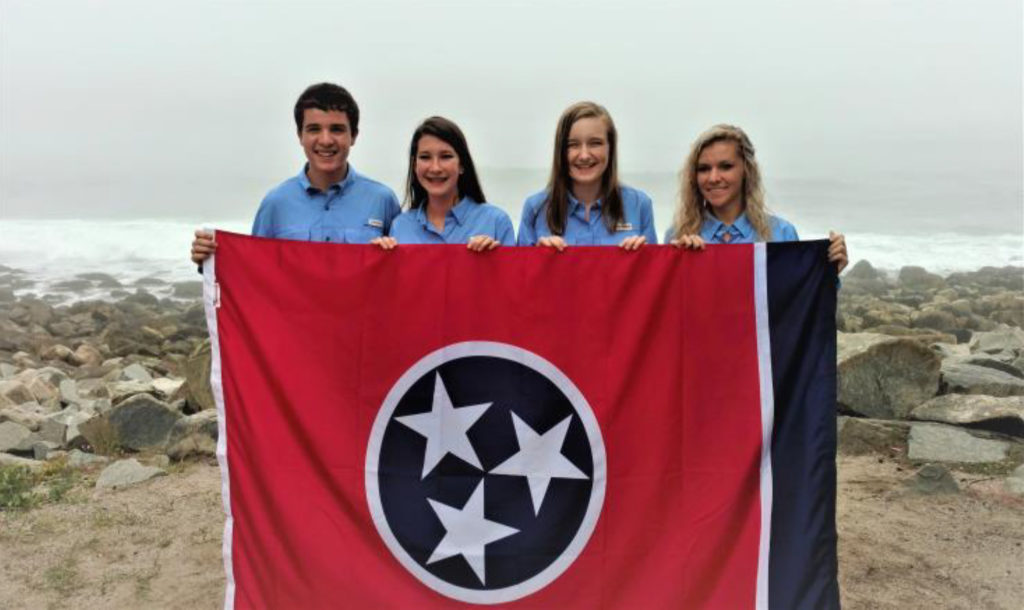Lincoln County Wildlife Judging Team are National Champions
Dan Owen, Lincoln County Agent

The Lincoln County 4-H Wildlife Judging Team competed and won first place at the National Wildlife Judging Contest held in Acadia National Park in Maine July 22-25. Individuals on the team were Sophie Buck, who placed first-high over-all; Ben Fisk, who was second-high individual; Chayton Stephens and Zoe Cowan rounded out the four-person team. The team is coached by Jennifer Hale. Seventeen teams from all over the United States were represented.
Contest events began on the 22nd with a “Share Fair” at historic Rockefeller Hall, a part of the Schoodic Institute. Each team brought items to trade with other states: Lincoln County shared t-shirts representing Fayetteville, TN and the Slawburger Fest, while in return the team acquired items such as maple syrup from Maine, tabasco sauce from Louisiana, pocket knives from Alabama, and key rings shaped like the states they represented.
On the second day of the contest, “Education Day”, the students were bused to various outdoor locations on the Schoodic Peninsula where they listened to a series of lectures on topics such as silviculture, deer wintering yards, small rodent trapping, phenology, seabirds, great blue herons, American beavers, and ephemeral pools. Each lecture was taught by an expert in the fields of wildlife biology, marine biology, forestry, and plant science. One of the highlights of the education day for the students was learning how to shoot a tranquilizer gun (used to capture large game animals). The Education Day was concluded with a traditional Maine lobster bake where each of the students was treated to his or her own lobster and instructed on how best to enjoy it.
On the final day of the event, the students competed as teams and individuals for the title of National Wildlife Judging Champion. The contest was divided into four components:
- Part I, the Wildlife Challenge, involved identifying animal species by physical and auditory features – skulls, pelts, feathers, and calls – in addition to answering questions based on overall wildlife knowledge.
- Part II, Wildlife Management Practices, involved judging a particular area of land and recommending management practices to improve the land and make it ideal for the focal species of wildlife.
- Part III, the Management Plan, required the four-person teams to devise a detailed plan and a cor- responding map detailing how to manage a land area for selected wildlife species living harmonious- ly. This required recommending habitat improvements and compromises based on knowledge of each species’ individual habitat requirements.
- Part IV, Oral Reasons, allowed each individual team member to demonstrate his or her personal knowledge of the wildlife management plan within an interview setting, defending the reasoning behind each decision. The Contest Day was concluded with an awards banquet. Rocky Top Tennessee was on top once again!
Travel to and from the contest was an educational event in itself as some of the students and their families toured Boston on the day before reporting in at Schoodic Institute. In Boston, the students enjoyed sightseeing via trolley tour bus that made stops all along the Freedom Trail. The group visited Paul Revere’s house and the Old North Church where the signal lanterns had been hung to alert Revere that the British were coming. The group also stopped to explore the U.S.S. Constitution, better known as “Old Ironsides.” They concluded the tour at the famous Boston Public Garden where swan boats have been in operation for 140 years. The day after the contest, the team stopped in Augusta to see Maine’s capitol building. The final stop for the group was in Scarborough, Maine, to visit Lenny” the world’s largest chocolate moose, a life-size sculpture crafted from 1700 pounds of milk chocolate. It was a sweet and happy ending to a once in a lifetime trip!

